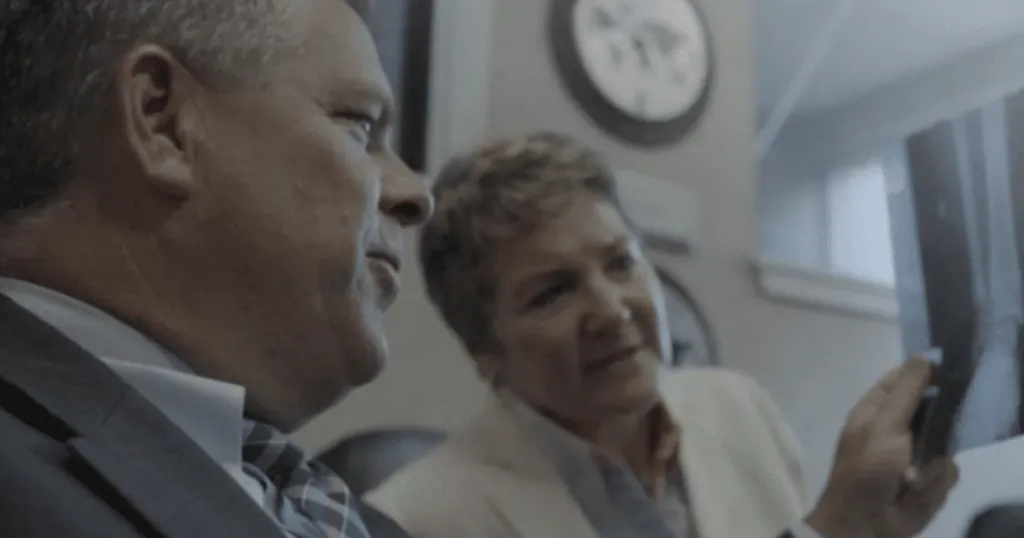After an accident, you might get a call from an insurance adjuster asking for a recorded statement. But should you give one? The answer depends on who’s asking and why. Your own insurance company may request a statement as part of your policy’s cooperation clause. However, the at-fault driver’s insurer has no authority over you and no legal right to your statement. What you say can significantly impact your claim, your credibility, and your compensation. Before agreeing to anything on the record, it’s important to understand how these statements work and how they can be used against you.
Understanding The Role Of An Insurance Adjuster
Insurance adjusters might sound helpful on the phone, but it’s important to remember one thing: they don’t work for you. Whether the adjuster represents your own insurer or the other driver’s, their main job is to investigate the claim and protect the company’s financial interests. That often means looking for ways to minimize what they pay out.
Your own adjuster may seem more cooperative, but their loyalty still lies with the insurance company. The other driver’s adjuster, however, is focused entirely on reducing or denying your claim. They may ask questions designed to shift the fault or downplay your injuries. While it’s natural to want to explain what happened, giving too much information or speculating can hurt your case. Understanding who you’re really talking to and why they’re asking certain questions is key to protecting your rights after an accident.
Why Insurance Companies Want A Recorded Statement
Insurance companies request recorded statements for a number of reasons. Their main goal is to gather facts, assess what happened, and determine liability. However, it is also a strategic move to protect their bottom line. Adjusters listen closely for any inconsistencies, vague details, or slip-ups that could be used to challenge your credibility or shift liability.
Even if your statement feels honest and straightforward, your words can be taken out of context or compared against other accounts to create doubt. This can lead to a lower settlement offer or a denied claim entirely.
Legally, you may be required to cooperate with your own insurer, but that doesn’t always mean agreeing to a recorded statement. For the at-fault party’s insurer, the request is purely strategic. They’re hoping you’ll say something they can use to reduce their financial responsibility. That’s why it’s essential to pause, understand your rights, and talk to a lawyer before saying anything on record.
Are You Legally Required To Give A Recorded Statement?
After an accident, it’s common to hear from one or both insurance companies asking for a recorded statement. But do you actually have to agree? The answer depends on who’s making the request. While it may feel like you’re obligated to cooperate, your legal responsibilities are different when it comes to your own insurer versus the at-fault driver’s insurance company.
Your Obligations To Your Own Insurance Company
Most auto insurance policies include a “duty to cooperate” clause, which generally means you’re expected to assist in the investigation of your claim. However, that doesn’t always mean giving a recorded statement. In many cases, documents supporting your claim (like an official police report or medical record), written responses, or phone conversations without recording may satisfy your obligation. It’s worth checking your policy and asking if there are other ways to comply without putting yourself at risk.
Dealing With The Other Party’s Insurance
You are under no legal obligation to speak with the at-fault driver’s insurance company, especially not on record. Recorded statements given to third-party insurers can be used to limit or deny your compensation. That’s why it’s strongly recommended to consult an attorney before responding. A lawyer can help you understand your rights and avoid saying something that might harm your case.
Risks Of Giving A Recorded Statement
Agreeing to a recorded statement may seem like a routine part of the claims process, but it carries serious risks, especially if you’re not fully prepared. Insurance adjusters are trained to protect their company’s interests, and they know how to use your own words against you. Even well-meaning, truthful answers can be misinterpreted, taken out of context, or used to challenge your credibility.
Misinterpretation And Leading Questions
Insurance adjusters often ask questions in ways that lead you toward damaging answers. Something as simple as “I’m feeling okay” can be used to suggest your injuries aren’t serious. They may also reframe your answers to create doubt about the severity of the accident or your role in it.
Inconsistencies And Memory Lapses
If your statement doesn’t match a previous report or if you forget a small detail, it could be used to suggest you’re being dishonest. Memory gaps are normal after a traumatic event, but insurers might portray them as red flags.
Risk Of Admitting Fault Without Meaning To
Even casual phrases like “I didn’t see them coming” or “I was in a rush” can be interpreted as admitting partial fault. Without legal guidance, you may not realize the legal weight your words can carry.
Consulting A Lawyer Before You Give A Recorded Statement To An Insurance Company
Before you speak to any insurance company, on or off the record, it’s smart to consult with a personal injury attorney. Insurance adjusters know the system inside and out. Without legal support, you may unknowingly say something that weakens your claim or affects your compensation. An experienced lawyer helps level the playing field and ensures your voice is protected.
Why Legal Representation Matters
A personal injury or car accident lawyer acts as your advocate, handling communications with insurers so you don’t have to navigate tricky questions alone. They understand how statements can be used against you and how to help you avoid common legal pitfalls. This guidance is especially critical before the full extent of your injuries or damages is known.
How Attorneys Strengthen Your Claim
Rather than giving a verbal statement, your attorney may issue a written summary that presents the facts clearly and carefully. They also manage negotiations to pursue a fair settlement based on strategy, not pressure.
Navigating the aftermath of an accident? Schedule your free consultation with Marasco & Nesselbush to protect your rights from day one.
Strategies For Handling A Request For A Recorded Statement
When an insurance adjuster asks for a recorded statement, you don’t have to agree on the spot, especially without legal advice. How you respond can impact your claim, so it’s essential to know your options and what to avoid saying.
Here’s a quick list of things not to say after an accident:
- “I’m not hurt.”
- “It was my fault.”
- “I think…” or “Maybe…”
- “I wasn’t paying attention.”
How To Politely Decline Or Postpone
If you’re unsure how to respond, keep it simple. You can say something like, “I’d prefer to consult my attorney before giving a statement”. You’re not legally obligated to give a recorded statement to the other driver’s insurer, and even with your own, you can request time to review your options.
Offer Written Statements As An Alternative
You can also offer a written statement as an alternative to being recorded. A written statement lets you share your side without the pressure of saying the “right” things. It also gives your attorney time to review your words, so nothing gets taken out of context or misunderstood.
Protecting Your Legal And Financial Interests
Protecting your legal and financial future after an accident starts with understanding your rights and your responsibilities. Insurance companies may act quickly, but that doesn’t mean you should rush into anything. Knowing what your policy actually requires and when to involve a lawyer can help you avoid missteps that could hurt your claim.
Understand What Your Policy Requires
Take time to review your auto insurance policy. Most include a “duty to cooperate”, but that doesn’t always mean you must provide a recorded statement. Cooperation can take many forms, and you have the right to clarify how and when you’ll communicate.
Know When To Get Legal Help
If you’ve suffered injuries, there are multiple parties involved, or liability is unclear, speak with a personal injury or car accident attorney right away. Legal help is also important if an insurer is pressuring you to give a statement or sign documents you don’t fully understand. Your protection comes first.
Real-World Example: How A Recorded Statement Cost A Claim
Recorded statements may seem harmless, but even casual remarks can be used against you. Insurance companies comb through your statement for anything that could shift blame or reduce what they owe.
Take this real-world scenario: after a serious crash at an intersection, the injured driver said in a recorded statement, “I didn’t see the light change”. Although the other driver clearly ran the red light, that one comment was enough for the insurer to assign partial fault. The result? A significantly reduced payout. It’s a clear example of how small misstatements can have a major impact on your claim.
Talk To Our Lawyer Before Giving Any Statement
Before speaking with any insurance company, it’s wise to talk to a lawyer who understands how these conversations can impact your case. At Marasco & Nesselbush, our experienced personal injury lawyers have helped thousands of clients across Rhode Island and Massachusetts navigate complex insurance issues. We know how insurers operate and how to protect your rights from the start.
Even a simple recorded statement can affect the outcome of your claim, especially in cases involving serious injuries or disputed liability. Schedule a free consultation today and let us guide you before you say anything that could hurt your case.
Frequently Asked Questions
Can I refuse to provide a recorded statement to the insurance company?
Yes, you can refuse to give a recorded statement to the other party’s insurer. For your own insurer, check your policy. Cooperation in the investigation is required, but a recorded statement usually isn’t.
What should I not say to my insurance company after a car accident?
Avoid admitting fault, guessing about injuries, or downplaying the crash. Stick to the facts and consult an attorney before giving detailed information.
What if I don’t report the accident to my insurer?
Failing to report the accident could violate your policy and lead to denied coverage, especially if the other party files a claim later.
What do insurance companies ask after an accident?
They’ll ask about the time and location of the accident, what happened, who was involved, and if there were any injuries or property damage. Be honest but cautious in your answers, stick to the facts, and don’t speculate.
Can giving false information backfire?
Absolutely. Providing false or misleading information can result in denied claims, policy cancellation, or even legal consequences. Always stick to the truth.
Do you have a case?
If you think you may have a case,
contact us now for a FREE consultation
"(Required)" indicates required fields


